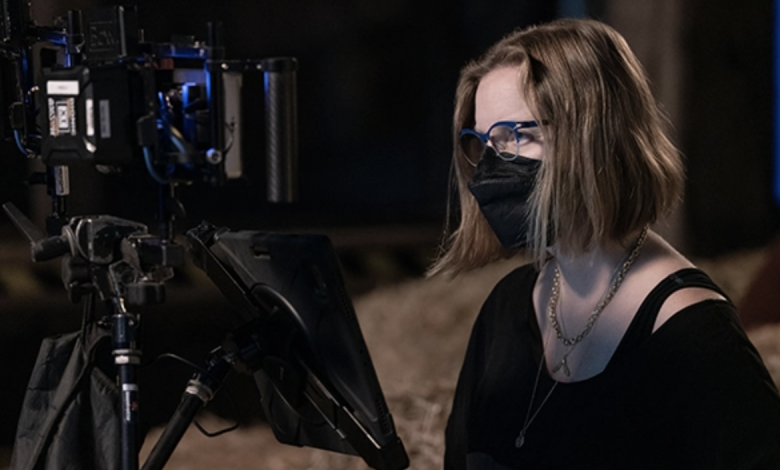Interview: Sarah Polley enters the conversation with Women Talking

Abigail Lee ‘25 / Emertainment Monthly Staff Writer
Content warning: This article is about a film that discusses sexual assault.
In Women Talking, democracy, at first, looks a lot like a system we know. When the women of a Mennonite colony discover that the men in their community have been drugging and sexually assaulting them for years, their response to the crisis takes a familiar form—a vote. Because the women cannot read or write, illustrations represent the three choices put to a vote: forgive the men, stay and fight, or leave the colony.
But the vote is just a prelude to the collective dialogue writer-director Sarah Polley makes clear constitutes an actual democratic process. “Voting is the first part of democracy, but it’s not the end,” Polley said, in a recent interview with Emertainment Monthly. The vote comes to a tie between leaving and staying and fighting, which brings a representative group together to make a final decision. The ensuing conversations are both “messy” and “sophisticated,” Polley said.
Based on the 2018 novel by Miriam Toews, Women Talking concerns the reclamation of social power and the gritty process of uprooting systemic violence. It deals with crises of faith and institutional complicity. The cultural relevance of the story was not lost on Polley as she adapted the book, which she described as a “bullet of stimulation.”
“We’re always kind of in a state, I think, of either having to fight for things or defend things that we’ve won,” Polley said.
Polley approached the parallels between the #MeToo movement and the colony’s reckoning by framing the story as a fable. A title card at the beginning of the film announces that it is “an act of female imagination,” and the film’s desaturated color palette engenders a feeling of distance from the real world. The initial idea was to shoot in black and white, but Polley and her collaborators wanted to capture the natural beauty of the rural canvas.
“I had this idea it would be really interesting if it looked like a faded postcard of a world that had already passed,” Polley said. “The very act of them sitting down, having that conversation means that the world they’ve been living [in] has already been consigned to the past.”
The intensity of the characters’ conversations continued behind the scenes.
“There was sort of a mirroring of the film happening in the making of it, where we were sitting around in these big groups having these really in-depth, rich, fruitful conversations,” Polley said. “There’s a lot of lines in the film that came from some of those conversations.”
Audiences are called to be just as engaged, as the film asks a series of complex questions that produce kaleidoscopic answers from its protagonists. The women are told they must forgive in order to secure their place in heaven. Their debate about forgiveness echoes our own conversations about cancel culture and addressing harm, which as Polley points out, often become reductive.
“It’s been said many times, but it resonates for me [that] a lot of what we call cancel culture is actually accountability, or it’s a bad day on Twitter for someone,” Polley said.
She emphasizes that these conversations need to prioritize the prevention of further violence.
“One of the things these women come to is the idea that forgiveness would be a great goal, but it cannot happen before harm has stopped,” Polley said. “There has to be a distance between the harm someone has done and a moving on from it.”
Polley finds that generationally, younger audience members have tended to respond to the film—and to the discourse around cancel culture and #MeToo—with more nuance. The film is in direct conversation with young people, she said, given its narration by Autje (Kate Hallett), the adolescent daughter of Mariche (Jessie Buckley)—a shift from the book’s narration by Ben Whishaw’s character, August.
“It suddenly is a much younger person’s movie…it got connected to people who are younger and more engaged and active politically,” Polley said.
Other dynamics have been revealed through audience reactions. The majority of the reviews Polley has read have come from male critics, an ironic contrast to the film’s themes. For Polley, the situation indicates how much more progress Hollywood needs to make.
She has been working in film since she was a child, first through acting, then through writing and directing (her first feature Away From Her received an Academy Award Nomination for Best Adapted Screenplay). Polley recently wrote about her unsafe experiences on set as a child actor. When it comes to navigating the industry, Polley collaborates with people who are “in it for the same reasons” as she is.
“Community, for me, is always the thing that’s the savior, and [it] is for the women in this film,” Polley said.
Women Talking opens to a limited theatrical release Dec. 2.